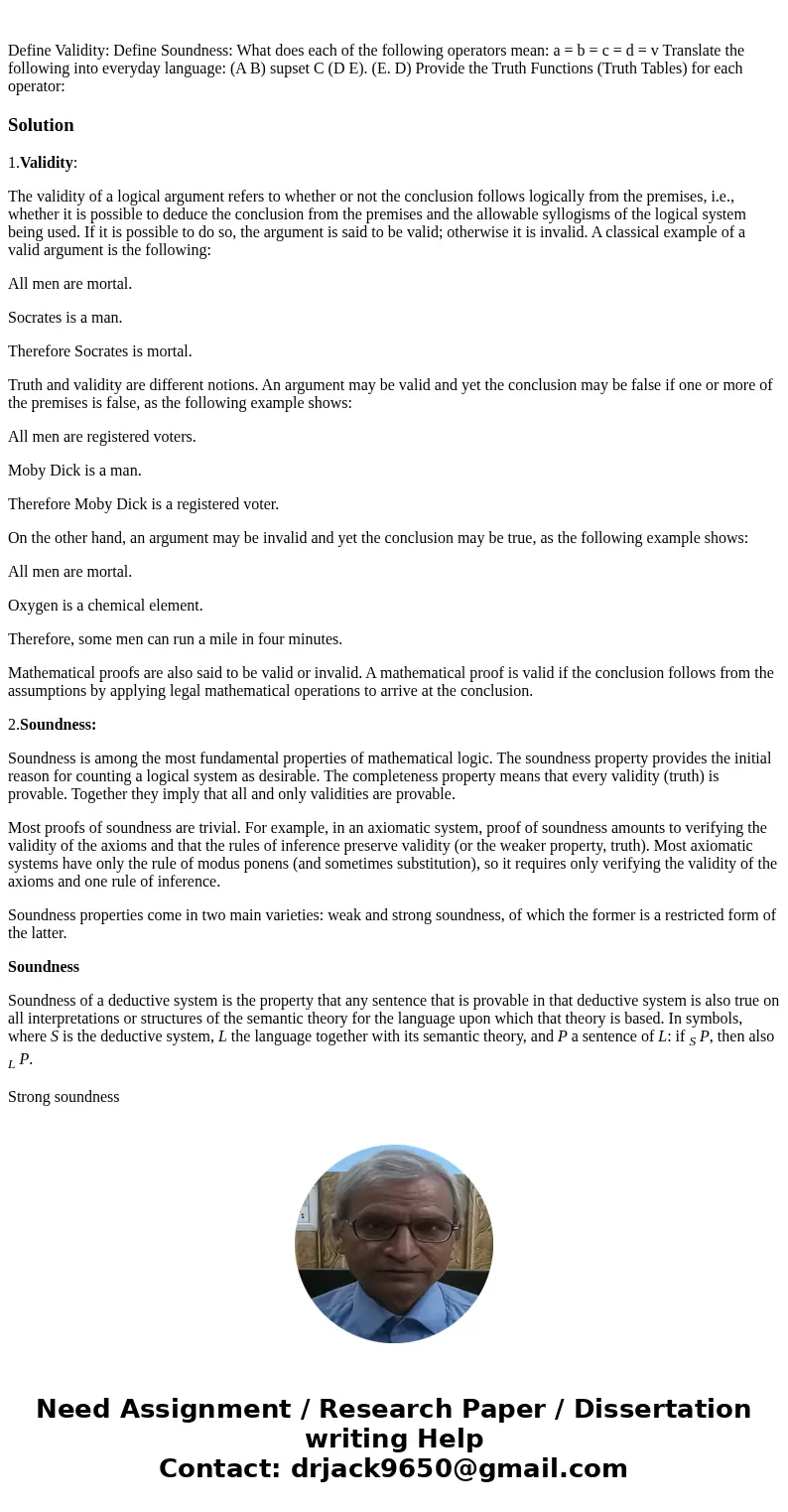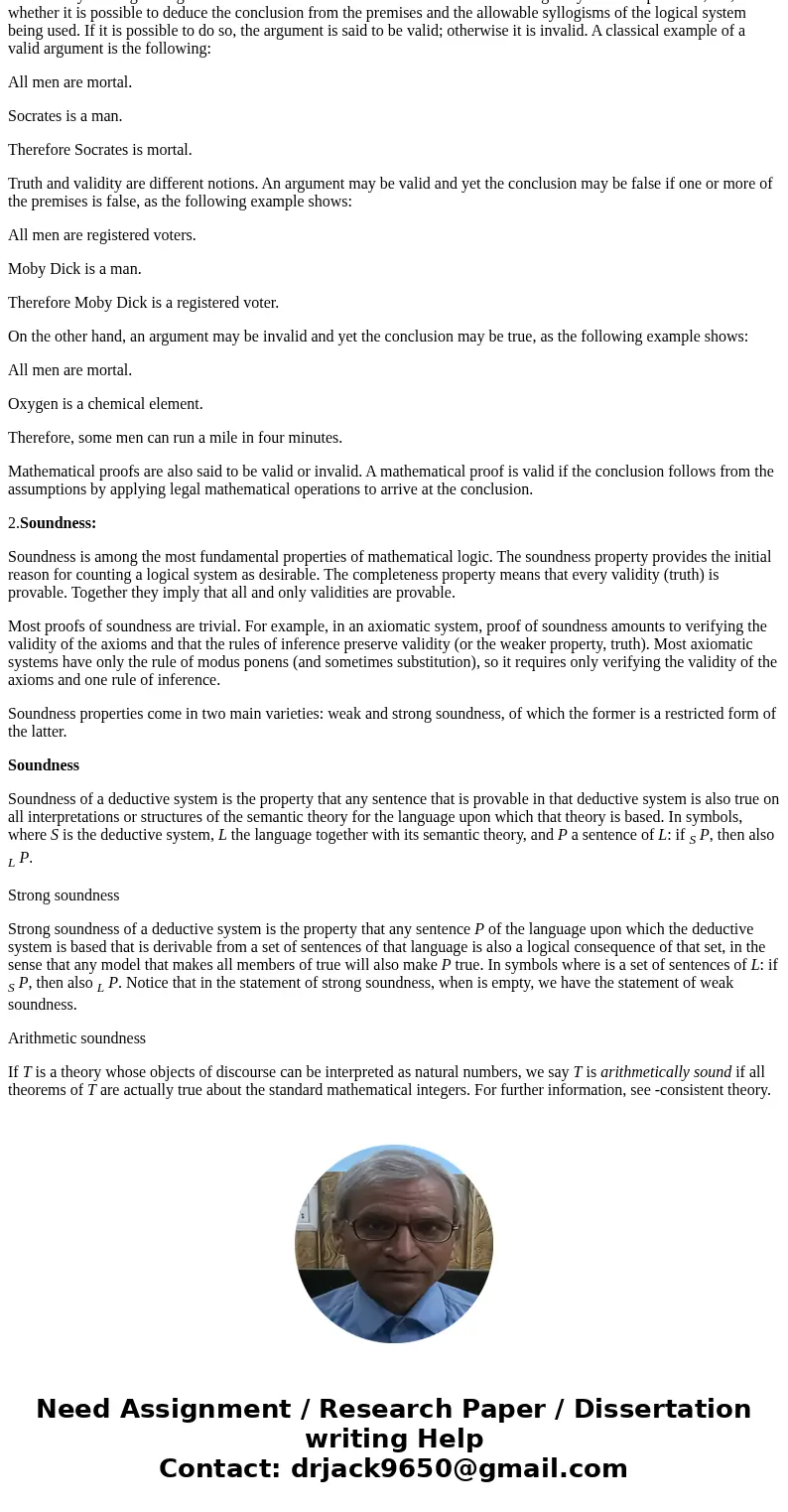Define Validity Define Soundness What does each of the follo
Solution
1.Validity:
The validity of a logical argument refers to whether or not the conclusion follows logically from the premises, i.e., whether it is possible to deduce the conclusion from the premises and the allowable syllogisms of the logical system being used. If it is possible to do so, the argument is said to be valid; otherwise it is invalid. A classical example of a valid argument is the following:
All men are mortal.
Socrates is a man.
Therefore Socrates is mortal.
Truth and validity are different notions. An argument may be valid and yet the conclusion may be false if one or more of the premises is false, as the following example shows:
All men are registered voters.
Moby Dick is a man.
Therefore Moby Dick is a registered voter.
On the other hand, an argument may be invalid and yet the conclusion may be true, as the following example shows:
All men are mortal.
Oxygen is a chemical element.
Therefore, some men can run a mile in four minutes.
Mathematical proofs are also said to be valid or invalid. A mathematical proof is valid if the conclusion follows from the assumptions by applying legal mathematical operations to arrive at the conclusion.
2.Soundness:
Soundness is among the most fundamental properties of mathematical logic. The soundness property provides the initial reason for counting a logical system as desirable. The completeness property means that every validity (truth) is provable. Together they imply that all and only validities are provable.
Most proofs of soundness are trivial. For example, in an axiomatic system, proof of soundness amounts to verifying the validity of the axioms and that the rules of inference preserve validity (or the weaker property, truth). Most axiomatic systems have only the rule of modus ponens (and sometimes substitution), so it requires only verifying the validity of the axioms and one rule of inference.
Soundness properties come in two main varieties: weak and strong soundness, of which the former is a restricted form of the latter.
Soundness
Soundness of a deductive system is the property that any sentence that is provable in that deductive system is also true on all interpretations or structures of the semantic theory for the language upon which that theory is based. In symbols, where S is the deductive system, L the language together with its semantic theory, and P a sentence of L: if S P, then also L P.
Strong soundness
Strong soundness of a deductive system is the property that any sentence P of the language upon which the deductive system is based that is derivable from a set of sentences of that language is also a logical consequence of that set, in the sense that any model that makes all members of true will also make P true. In symbols where is a set of sentences of L: if S P, then also L P. Notice that in the statement of strong soundness, when is empty, we have the statement of weak soundness.
Arithmetic soundness
If T is a theory whose objects of discourse can be interpreted as natural numbers, we say T is arithmetically sound if all theorems of T are actually true about the standard mathematical integers. For further information, see -consistent theory.


 Homework Sourse
Homework Sourse